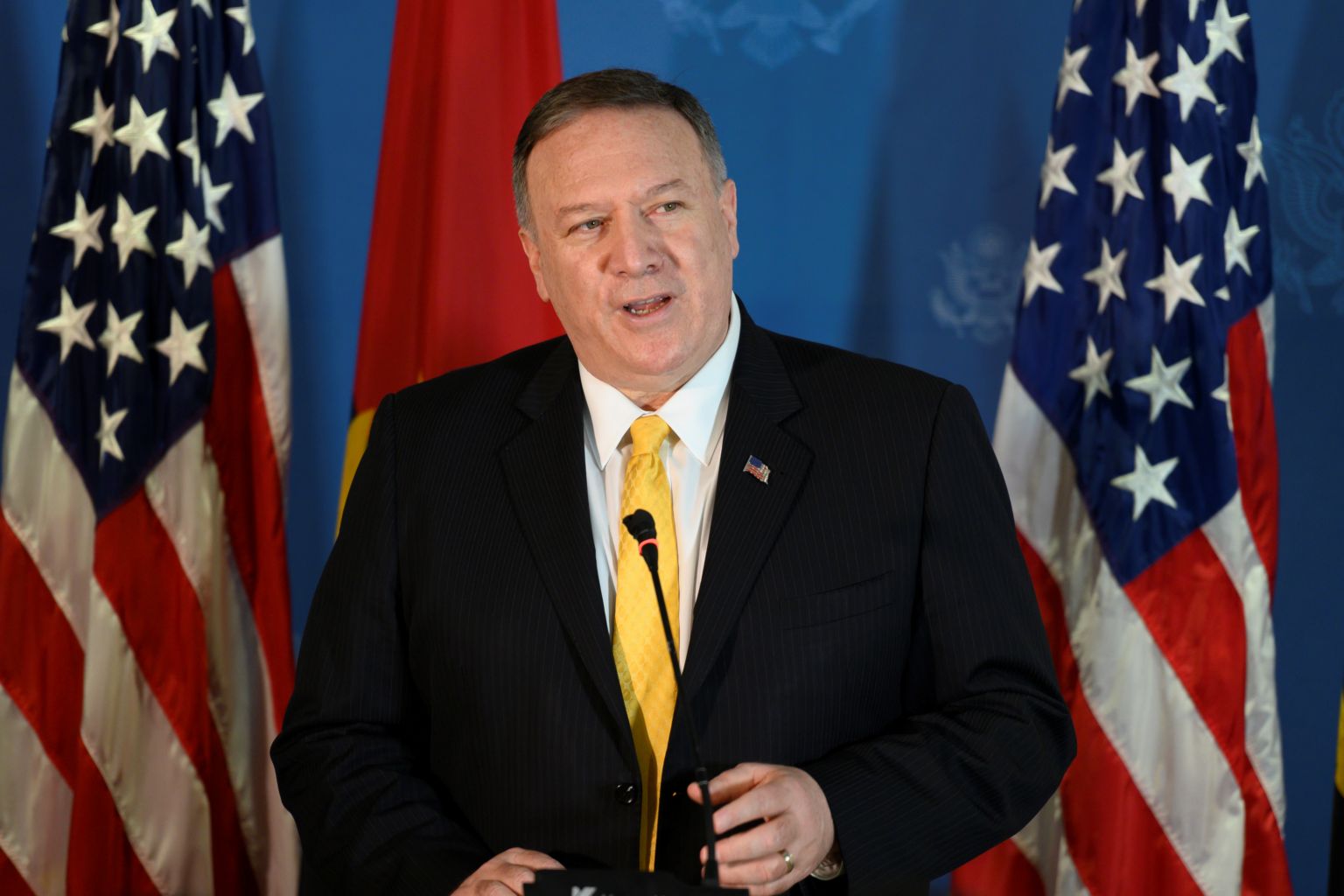Editorial Notes
Pompeo on fool's errand in Africa: China Daily
In its editorial, the paper says that the US will find few willing followers in Africa if it tries to play geopolitical cards reminiscent of the Cold War era.
Sign up now: Get ST's newsletters delivered to your inbox

There are signs that US Secretary of State Mike Pompeo will simply take his trip as an opportunity to urge African officials and business leaders to reconsider their close cooperation with China.
PHOTO: REUTERS
BEIJING (CHINA DAILY/ASIA NEWS NETWORK) - US Secretary of State Mike Pompeo on Saturday (Feb 15) started a trip to Senegal, Angola and Ethiopia, his first to sub-Saharan Africa in his nearly two years in office.
Which comes as no surprise given the increasingly important political and economic roles the world's youngest, and likely to be most populous, continent has been playing in recent years.
And it could be welcome news for these countries should the top US diplomat's visit focus on promoting trade, good governance and rule of law, as has been widely reported.
After all, cooperation is the only way for the United States to engage with Africa more closely.
The previous arrogant and sometimes demeaning manner the US adopted toward Africa - the US president once even described parts of Africa as "sh*thole countries" -could only estrange the continent.
But there are signs that Mr Pompeo, who calls the Communist Party of China "the central threat of our times", will simply take his trip as an opportunity to urge African officials and business leaders to reconsider their close cooperation with China.
As a senior US State Department official reportedly said, a "major theme" of Mr Pompeo's visit will be the growing role of China.
Yes, China has become Africa's largest economic partner, providing it with much needed investment and technology, in addition to infrastructure that includes railways and roads, schools and hospitals.
But such cooperation has been based on win-win policies and mutual benefits. The myths of China's "debt traps" and practice of neocolonialism in Africa, as some in the West have tried to spread, have basically been trashed, as facts have proved otherwise, pointing to new jobs created, people's livelihoods improved, and economic growth becoming robust in countries with Chinese assistance and investment.
In contrast, Washington has remained aloof and inactive in terms of Africa assistance.
The US administration's fiscal year 2021 budget proposal slashes assistance to Africa by 39 per cent, or US$3.23 billion ($4.5 billion), and funding for key health programs in Africa like the President's Emergency Plan for AIDS Relief, sees a 26 per cent cut.
The Pentagon also announced last week that it would start cutting the US military presence in Africa that is there ostensibly to help fight against Islamic extremists.
So if the US really wants to extend a helping hand to African countries, help them finance their economic growth, adopt a business model that works, or unleash new trade policies in manufacturing and infrastructure, it will find few willing followers in Africa if it tries to play geopolitical cards reminiscent of the Cold War era.
Any attempt to drive a wedge between China and Africa would be self-damaging, and extremely difficult.
China Daily is a member of The Straits Times media partner Asia News Network, an alliance of 24 news media organisations.


